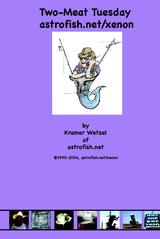Thee and Thou
Listening and viewing Shakespeare stuff, over and over, I ran up against a weird language thing. “Thee,” and more important, “thou,” as frequently used — and misused. In Shakespeare’s era, there was a different meaning.
“Thou,” despite its height-faultin’ sounding terms, and the way then word resonates, these days? In its era? It was more familiar.
“Thou” would be like “y’all.”
“You” would be like “all of y’all>”
That’s not it, but in a meditative moment, that’s what came to mind. Seems that — think two princes addressing each other, one saying, “You, sir,” while the other saying, “thou?”
It would be a subtle put-down, “Thou” being the familiar form, in Shakespeare-speak. Spanish, French, any of the languages derived directly from Roman? The so-called Romance languages?
There’s the familiar form of the second person, “y’all,” and then there’s the formal form, “all of y’all.”
Still doesn’t work, but can aid in understanding some nuances when certain princes are talking to each other, and when addressing a king? “You, sir.” The king to the prince? “Thou,” as in “you minion.”
“Wouldst thou”
Thou is addressing someone of lower rank.
“Wouldtst thee”
Thee is addressing of equal or higher rank.
Before going back to nay of the Henry plays, I was thinking, helps to sort this data out in my own head, as it adds a layer of royal court drama to the dialogue. subtle stuff where the characters are belittling each other in front of gods, king, and everyone.
“Didn’t thou knowest this, fool?”
I would if thee had shown me.
astrofish.net/travel

Two-Meat Tuesday – Kramer Wetzel
Two-Meat Tuesday: Astrofish.Net/Xenon
